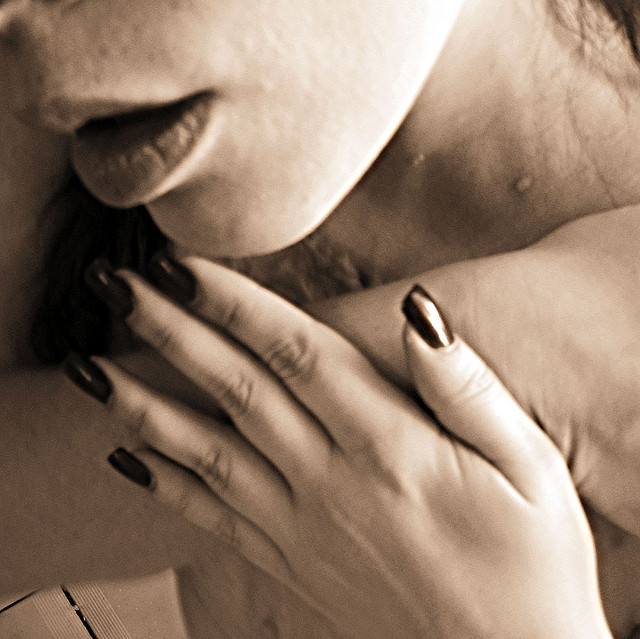When I was twenty-one I had my first major surgery, a partial thyroidectomy.
The Doctor found cancerous nodules on my thyroid during a routine checkup.
At the time the news broke that I was going to need surgery for its removal, the only thing that I could ruminate was the thought that I would have a scar on my neck for the rest of my life.
The vanity aspect of things surpassed any concern for my health being at risk. At the time, all I could think was how could I possibly live with a visible scar for the rest of my life?
Scars are result of the body healing itself after infringement, many people have them, they come in all shapes and sizes, and there is a million dollar market for various creams to reduce appearance. But all too often people find themselves ashamed of the scars they carry, a discomfiture that warrants concealing. The body is a carefully orchestrated symphony and the keynotes are to protect against the external environment.
Scars are there to create a shielding barrier and when your body goes through any form of destruction, the impairment of a scar, or the healing process is instantaneously set in gesticulation. On the other hand, scars also offer a telling story, an aide-mémoire of our past and the battle we fought to wear them proudly.
In the beginning I would formulate “cool” stories about what I could possibly tell people if they asked why I had the scar. This was my way of being emotionally detached from my scar and what I had endured to gain it. During this tempo, I was doing anything but wearing it proudly. Unable to lie about how I got the scar, I decided one day to just tell the truth, the whole truth and nothing but the truth—to wear my battle scar with honor.
Fast-forward eight years and we should be able to assume that I would have learned a thing or two from my 21-year-old self, but that would be too easy. Inopportunely, I did not take any lessons from my former self, and unbeknownst to me, eight years after that initial scar on my neck, I’d come to find out that cancer was back and this time it was Colon cancer.
Unpredictably, the surgeon had to engrave a rather large incision down the center of my stomach. There were no two ways about it: my abdomen had been sliced open from side to side and top to bottom.
Once the news was finally revealed and the Doctor illuminated their route of entry, I was immediately reminded of my discerning 21-year-old self and my excessive conceit. Don’t get me wrong; I don’t walk around baring midriff, but the thought of my reflection starring back with a sizeable scar across my stomach sounded anything but appealing. For the first few weeks my recovery from surgery, I refused to look at myself in the mirror as I was deeply terrified of what my reflection would project.
Yet again, I was abashed by my body and the distorted pictorial I had of my battle scars. It wasn’t until after I was released from the hospital that I mustered up the courage to look at my wounds. I had discovered that it wasn’t the actual scars that I was reluctant of, but rather what they came to represent—cancer.
After irreversibly seeing my battle scars for the first time, it became easier and easier to see my reflection in the mirror. We all have self-doubt and mine came in the form of shame, a shame that I was unable to shake since I was twenty-one. Auspiciously, going forward I have vowed not view my scars with dishonor, but rather a reminder that I have the indulgence of being alive.
Life and death is a fine line, my friends and one that must be walked respectably with the scars that we are fortunate enough to collect.
Relephant:
Brave Woman Bares All. {Nudity}
Author: Britt Ochoa
Editor: Renée Picard
Image: Michelle Brea at Flickr












Read 0 comments and reply